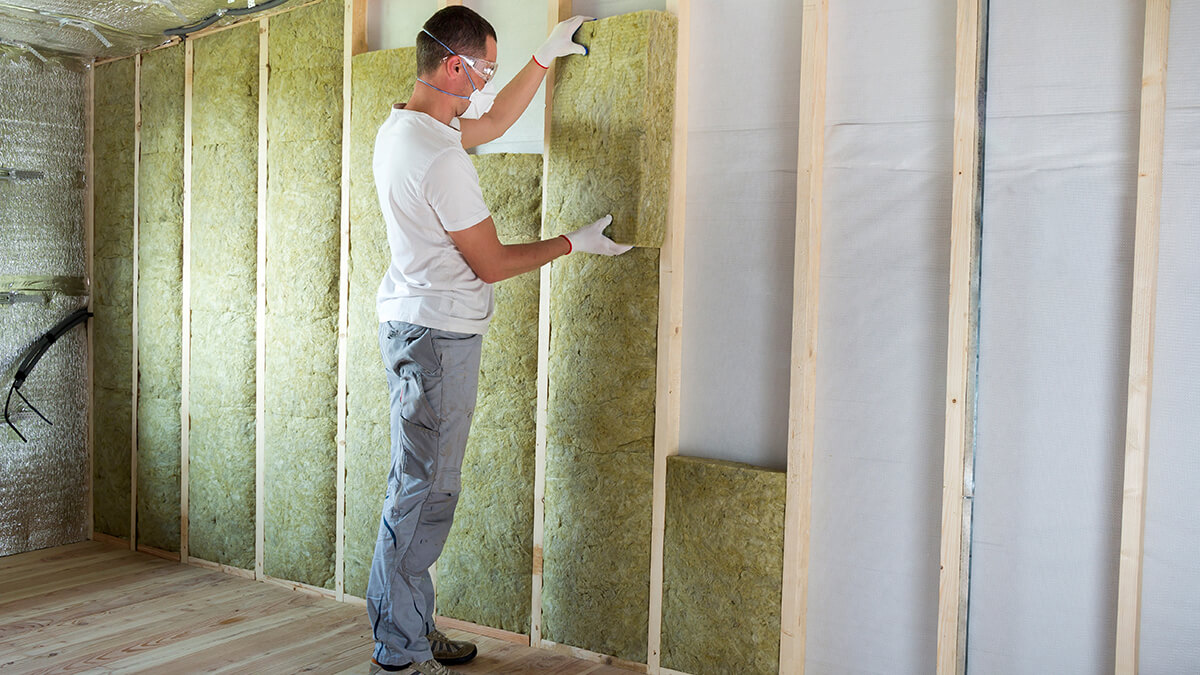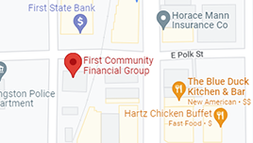First Community Financial Group, Inc. Blog |
|
0 Comments
Many memories in Texas are made camping, and a lot of those might include being in a tent or even a camper. Travel trailer camping is popular for good reasons such as space, towability and accessibility. But whether you're new to the concept or have already had a few adventures (including tailgating!), these handy tips can serve as reminders for a better outdoor experience:
And before you head out on the road in Texas and abroad with your travel trailer, remember you can always speak with us at First Community Financial Group to shop for coverages so you can protect the things you tow. We are a Foremost and Progressive agent! Parking lots in Texas– we love the convenience but hate the frustrations, especially when people are driving too fast, backing out of spots without looking and otherwise modeling bad parking lot behavior.
That behavior just so happens to be the cause of many a door ding and irritated driver. Even worse, careless behavior can cause a collision or injury. So, let’s all slow down and follow these five tips to make parking lots safer for everyone:
Remember, when you’re watching for dangers, you have a better chance of avoiding them. If an incident does occur, we here at First Community Financial Group are ready to help. Content provided by Safeco and Liberty Mutual Insurance The wind in your hair, the sun on your face, and the open water in front of you. Sound appealing? Then you might want to join the ranks of boat owners all over the country. But before you cut through that clear blue water, there are some things you may want to keep in mind. Whether you're buying a fishing boat, cabin cruiser, pontoon or speed boat, different components like cost, horsepower, weight capacity or onboard storage may prove to be more important to you than others.
Answer these questions before going boat shopping: What are you hoping to use your boat for? All boat styles have a different design tailored to the use. Speed boats may be better for tubing and water skiing but wouldn't hold as many people or be as suited for fishing as a dedicated fishing boat or a pontoon. Maybe you'll want to sail or spend time living on the open water in a houseboat. There are so many different varieties of boats, brands and manufacturers, so make an informed decision on which one is right for you. What's your budget? This may help decide whether to buy a used boat. According to Discover Boating, new boats depreciate anywhere between 25%-33% immediately after leaving the dealer's lot. So, if you buy a used boat, someone else has already paid that depreciation cost - more boat for fewer dollars! However, buying a new boat will offer a warranty, the newest technology, and that nice shiny look as you move across the water - the choice is up to you! How many people are you hoping to go on your boating excursions with? The capacity on personal fishing boats is generally smaller than a pontoon boat, which are made to hold anywhere between 8-15 adults comfortably. What type of equipment will you want onboard? Here's some suggestions:
Will your car be able to tow your boat? A 20-foot boat trailer can range from 600 to 1,000 pounds, and most boats in this size range hover in the 4,000-5,000 pound range.* This means that you'll want an SUV or truck that is rated to tow between 4,500-6,000 pounds in total. Where are you placing your boat in the off-season? Having storage for your boat during the colder months is important and must be planned ahead. Some may place their boat in their garage, outside of their garage or in a separate storage space. And a few other components to consider…
No matter what you decide, get out there, matey, and enjoy the open seas! Looking for boat insurance? Get a quote today by calling 888-244-8092 to speak with a licensed agent or find a Foremost insurance agent near you. Or contact us at First Community Financial Group. We are a Foremost agency! Content provided by Foremost Insurance. Whether you were caught speeding (or worse) or you simply want to be a better driver, there are a wide range of defensive driving and driver improvement courses available in Texas these days.
But which is right for you? Here are five tips to help you decide: 1. Check with your state or municipality. If you’re taking training to avoid a traffic infraction, not just any course will do. You’ll need to take an approved course – ask for a list before signing up. 2. Check with your insurer. The same goes if you’d like to potentially save on your car insurance. Your carrier may only offer a car insurance discount for completing certain courses. Also ask how much your discount will be — this will help when it comes time to choose a course. 3. Choose the type of course. There are online and classroom options, typically ranging from 4-12 hours depending on the course material. And there are advantages to each. Online courses offer convenience (and sometimes a lower cost), while in-person settings can provide more interaction. 4. Determine how much you want to spend. If you’re trying to avoid a ticket (and a potential increase in your insurance premiums), the cost might not be much of an issue. If you’re taking a course to receive an insurance discount, however, make sure the total discount you’ll receive is greater than the cost of the course. 5. Check out the reviews. Online review sites, such as Yelp, can show you what others thought of a course. Keep in mind, people who felt “forced” to take a course might have a biased opinion, especially compared to someone who took the course willingly. No matter why you’re considering a defensive driving course, we’re happy to help you weigh the pros and cons. The biggest pro being, once you complete your training, you’re likely to be a little more careful the next time you get behind the wheel. And, that always pays off! Whether you own a site-built home, mobile home, RV or small business, it's always a good idea to create a Personal Property Inventory. Photos, etc. of big-ticket items can be very helpful in the event of a claim!  Ah, Valentine’s Day is near, and love is in the air. Well, love and a few other things, such as chocolates, romantic dinners, candy hearts that say “Be Mine” - and, of course, jewelry. It’s exciting to receive jewelry from a loved one — or to give it as a gift. Not to mention romantic. But if you’re lucky enough to have some new jewelry in your Texas home this Valentine’s Day, you should take a few minutes to think about something you probably don’t find exciting or romantic: insurance. Don’t know where to turn? Don’t worry. At First Community Financial Group, we think it is exciting to help our customers protect what’s most important to them — so we’re ready to help and can answer all of your questions. Things to consider when insuring jewelry: You may need to purchase additional coverage. Your Texas homeowner's policy may cover valuable items such as jewelry, but only up to set amounts. If the cost of replacing your jewelry exceeds that limit, you will want to purchase scheduled personal property coverage. You can check your policy or give us a call at 936-327-4364. You might want to reconsider your deductible amounts. As always, this impacts your policy premium. It’s a good idea to take a look at your deductibles whenever you make a change to your policy. Do you need an appraisal? You may need to have an independent appraisal if the insurance company requires it or if you don’t know the value of your jewelry. Each item should be listed with a description and value on paper. What kind of coverage is offered? You’ll want to determine if items are covered no matter where they are, whether they’re in Livingston, Houston, Dallas... or on an international trip, and if the policy offers full replacement cost. You also should ask if you will be required to replace your jewelry if lost or stolen, or if you can simply keep the cash settlement. Pictures can be helpful. Lost or stolen pieces of jewelry sometimes can be recreated if the jeweler has a good photograph to work from. Should I go with a company that specializes in jewelry insurance? There are companies that specialize in jewelry insurance. Whether you choose one of these, or a company that we represent, you’ll want to make sure they are reputable and stable. Is the value of your jewelry mainly sentimental? Is an item irreplaceable? If the answer to either of these questions is “yes,” you might consider foregoing insurance. But please, talk to us at {agency-phone-#} before making that decision. That’s what we’re here for. Of course, it’s important to store your jewelry securely when it’s not in use; a safe in your home or a safe-deposit box is best. We want your jewelry to be replaced if it’s lost or stolen, but we’d rather your sentimental and valuable pieces stay with you and your family for years to come. Here’s hoping your Valentine’s Day is full of fun and romance. And if there’s no jewelry involved, well, there’s always next year! Contact Us! For further questions and assistance, please contact First Community Financial Group at 936-327-4364 or [email protected]. Content provided by Safeco Insurance Insulation plays a leading role in keeping a house cool during hot seasons and warm during cold seasons. This protection from radiant heat and cold drafts helps you to save energy and money in the long run.
If you are interested in insulating your house, here are some useful tips from The Family Handyman that will help make your DIY project a success. You can check out a full article on mastering the art of installing home insulation below from Foremost ( Farmers) Insurance. Tips on installing home installation | Foremost Insurance Group Moles don't come above ground often. But when they do, they make their presence known. Unfortunately, the renovations they make aren't always the most desirable.
Click on this link to read more about how to rid your yard of these pesky varmints: A Guide on Getting Rid of Moles | Foremost Insurance Group |
Contact Us(936) 327-4364 Archives
July 2024
Categories
All
|








 RSS Feed
RSS Feed
